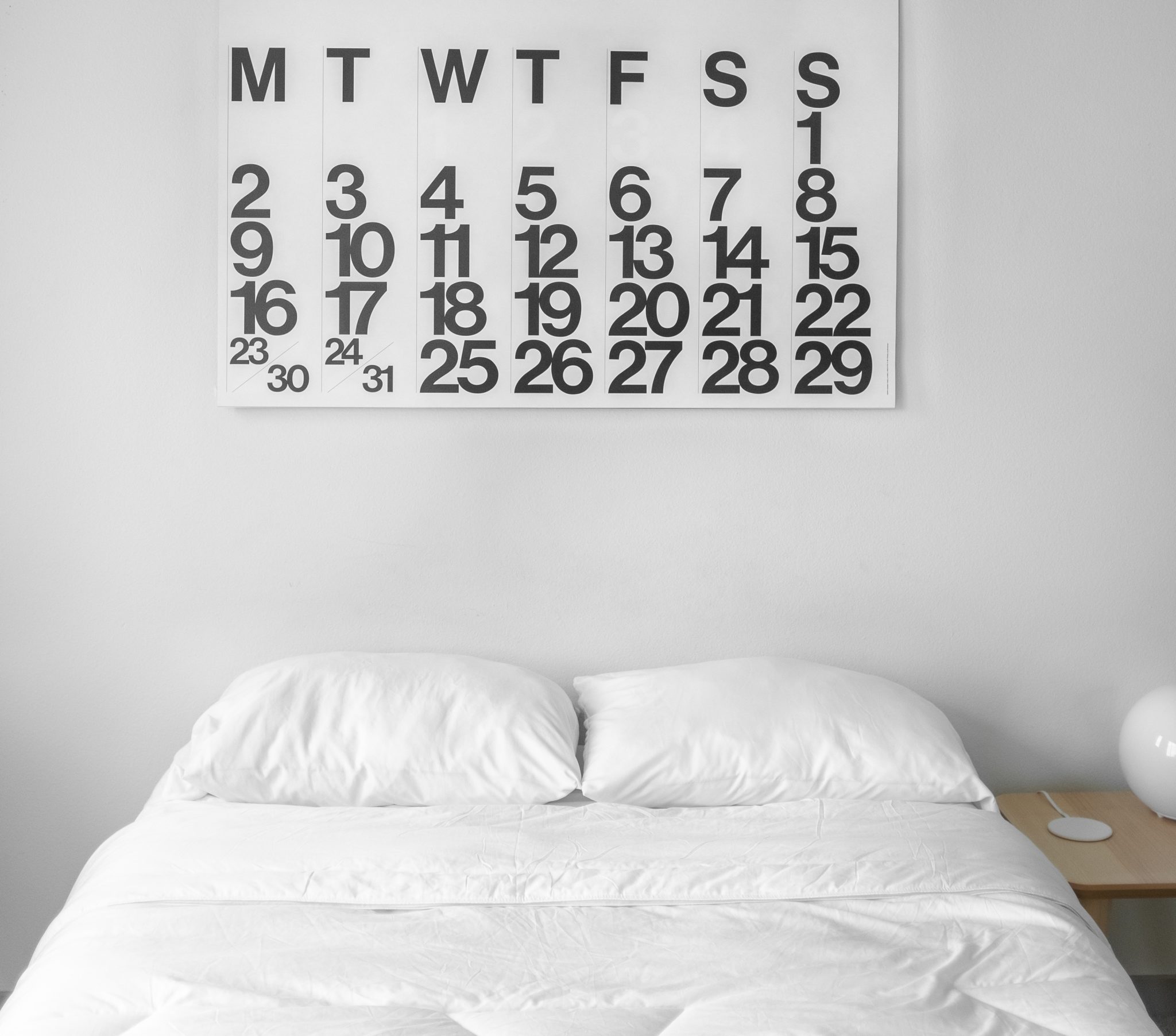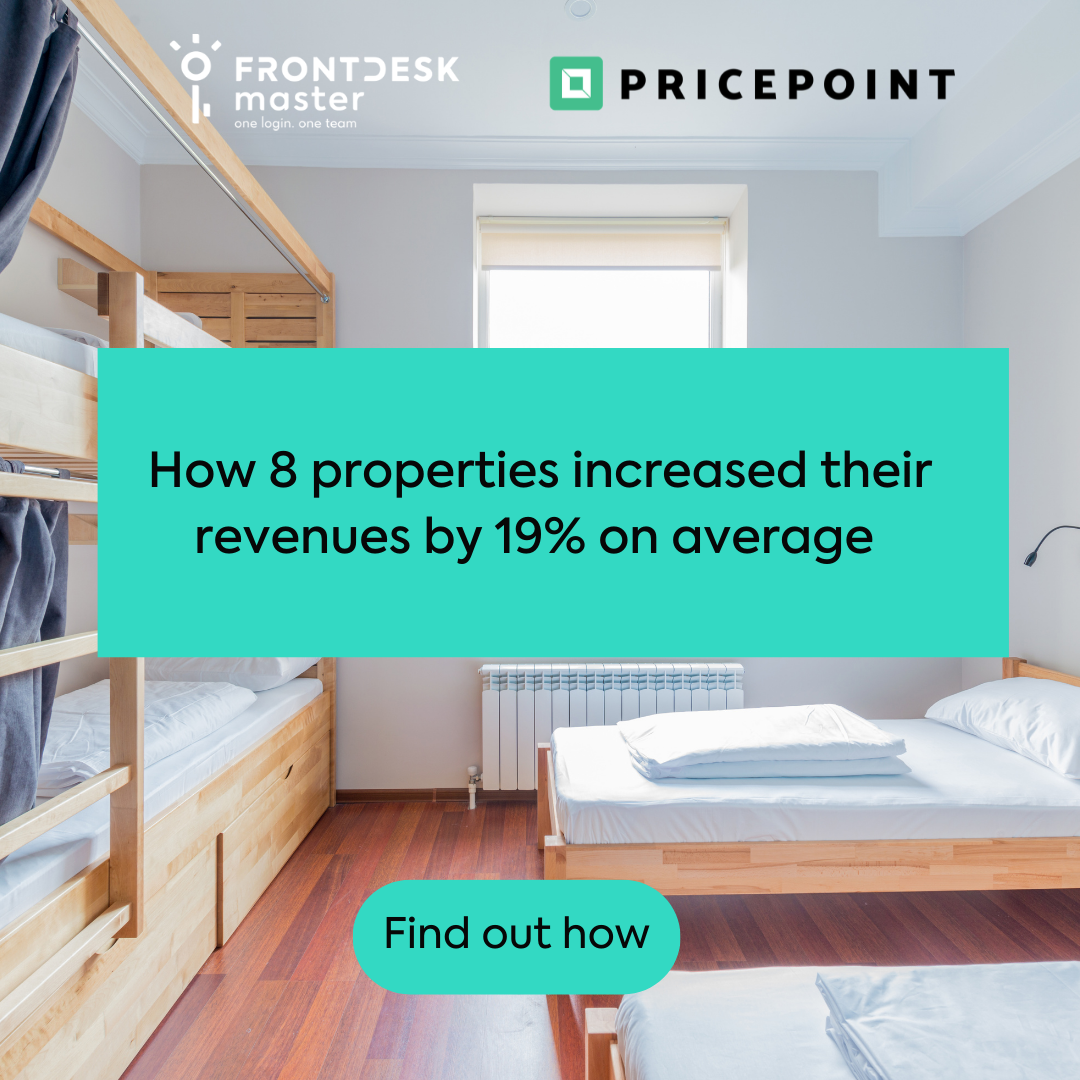How to build and set up price strategies in a hostel

Setting the right price is extremely important in the hostel. After all, you need to find the sweet spot between too high and too low. Easy peasy, right? And there are many ways to go about it. This post discusses setting up price strategies in a hostel and how FrontDesk Master helps you with this.
What are price strategies in a hostel?
When we talk about pricing strategy, we mean deciding what price you will set up for selling beds and rooms to maximize profits.
Before you build a strategy, you will need to take into account these factors:
- Hostel location
- Type of guests
- Seasonality
- Local and major events
- Hostel unique selling proposition
- Hostel ratings
- Historical data
- Market trends
- Fixed and variable costs
- Competition
We know – there’s a lot to take in. Technology like property management systems, channel managers, reputation management systems,, and revenue management systems can help to process this information.
In general, there are 3 ways to go about building price strategies:
- Customer-based pricing
- Cost-based pricing
- Competitor based pricing
Cost-based pricing: Calculate the basic rate
Your basic rate will be the lowest one, which covers the cost of selling the room. It’s important to not sell below it, as you will lose instead of gaining profit (and that’s not the point, right?).
To calculate it, you will need to sum all the fixed and variable costs involved in selling and maintaining the room.
Then add to this sum the profit you want to gain. Voilà – you have the cost-based pricing.
Customer-based pricing
Based on the type of customers you have, you can build these three types of pricing:
- BAR – Based Available Rate, open for all. It can change daily (few times a day, even when you apply dynamic pricing), seasonally, or for the weekend.
- Corporate rate– reserved for the businesses with which the hostel collaborates. It’s a flat rate that doesn’t change over the year. When you apply it, it’s worth excluding some dates when it’s not possible to book, like over the bank holidays or important events (when there’s more demand and your prices can be higher).
- Group rates are usually low, but it’s because you expect a high value of people coming simultaneously.
Competitor based pricing
To calculate prices based on your competitors, you need to have insights and data on them. It’s essential to choose the right competitors and monitor what they do daily.
However, there are flaws to this pricing since you can’t be sure 100% why they lower the prices: maybe they had room to fix it? Following your competition blindly will not bring you to the place where you want to be: with maximized hostel revenues.
6 tips for hostel pricing strategy:
- Instead of discounting rates in the effort to fill in the empty beds, consider adding value to the price in the form of service your ideal guests might want to have
- Create packages, for example, bed, breakfast, and surf lessons
- Create clear cancellation policies with non-refundable and refundable rates
- Consider applying dynamic pricing (using a revenue management system can help you with that)
- Use a length of stay restrictions: set minimum night stay over the weekends and important events.
- Set up pricing strategies in your hostel PMS, so rates adjust automatically
FrontDesk Master lets you create price strategies that automatically adjust prices in the system, depending on room type’s availability, season, or several days before arrival.
Here is a short video tutorial on how you can apply it.
You can also use our Help Desk to set it up for yourself.


